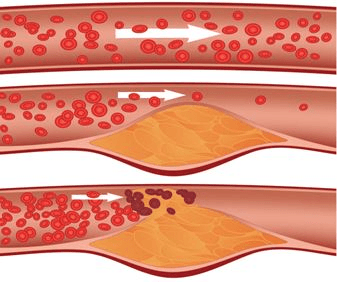USE OF DIOSGENIN, YAMOGENIN, TIGOGENIN AND NEOTIGOGENIN FOR TREATMENT OF HYPERLIPIDEMIA BY INHIBITING CHOLESTEROL ABSORPTION IN GIT
Keywords:
Curcuma Longa, exclusion criteria, heavy meal, hypolipidemic effects, Jinnah HospitalAbstract
Objective: High plasma lipids interact with free radicals in human body leading to develop coronary artery disease. We in this study have compared hypolipidemic effects of Fenugreek, Curcuma Longa, and lemon.
Methods: Study was conducted at Jinnah Hospital Lahore-Pakistan from January 2018 to May 2018. Ninety hyperlipidemic patients of age group 19 to 70 were included in the study. Exclusion criteria were diabetic, alcoholic additives, hypertensive patients and those whose kidney or liver functions were impaired. Consent was taken from all participants. Their base line lipid profile was taken in biochemistry laboratory of the hospital. They were divided in three groups i.e. 30 patients in each group. Group-I was advised to take 500 mg of Curcuma Longa (haldi) mixed in fresh milk without cream, thrice daily for two months. Group-II patients were advised to take 100 grams of Fenugreek leaves mixed with salad in each meal (thrice daily) for the period of two months. Group-III patients were advised to take 40 ml of fresh lemon juice mixed with 40 ml mineral water thrice daily for two months. They all were advised not to take heavy meal rich with any type of fat like junk food etc. One hour daily brisk walk was advised to all participants. 15 days follow up visit was scheduled for them. After two months their lipid profile was re-determined.
Results: When results were compiled and statistically analyzed by applying paired ‘t’ test, it revealed that Curcuma Longa decreased total cholesterol, TG, LDL cholesterol 16.10, 20.01, and 17.59 mg/dl respectively. Fenugreek decreased total cholesterol, TGs, and LDL cholesterol 14.70, 17.33, and 17.06 mg/dl respectively. Lemon in two months therapy decreased total cholesterol, TGs, and LDL cholesterol 15.45, 10.13, and 11.97 mg/dl respectively. None of the above mentioned herbs raised HDL cholesterol significantly.
Conclusion: It was concluded from this research work that Curcuma Longa, Fenugreek leaves and Lemon are mild to moderately effective hypolipidemic herbs to lower total plasma cholesterol, triglycerides, and LDL cholesterol but have no potential to raise HDL cholesterol when analyzed biostatistically.

Peer Review History:
Received 8 February 2019; Revised 11 March; Accepted 28 April; Available online 15 May 2019
Academic Editor:
Dr. Iman Muhammad Higazy , National Research Center, Egypt, imane.higazy@hotmail.com
, National Research Center, Egypt, imane.higazy@hotmail.com
Reviewer(s) detail:
Dina Abd Elfattah Eldakhs , Pharos university (PUA), Egypt, dina_eldakhs@yahoo.com
, Pharos university (PUA), Egypt, dina_eldakhs@yahoo.com
Dr. George Zhu , Tehran University of Medical Sciences, Tehran, Iran, sansan4240732@163.com
, Tehran University of Medical Sciences, Tehran, Iran, sansan4240732@163.com
Downloads

Published
How to Cite
Issue
Section

This work is licensed under a Creative Commons Attribution-NonCommercial 4.0 International License.









 .
.